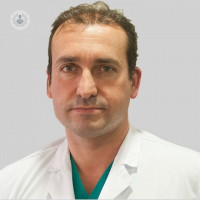Pacemaker device that gives rhythm to the heart
Written by:A pacemaker is a device consisting of a generator (which includes the "computer" and the battery) and one or more cables (or electrodes). The electrode is implanted inside the heart and is connected to the generator, informed to the latter of what happens in the heart. When it detects bradycardia (decreased heart rate) the generator sends an electrical impulse that causes a heartbeat.
The pacemaker is recommended for the patient with a low heart rate (less than 50 bpm) in which there is also a pathology of the conduction system and / or is symptomatic. The most frequent symptoms are dizziness, fainting (syncope), fatigue in general and lack of "air" (dyspnea).
Types of pacemakers
There are several modalities with 1, 2 or 3 electrodes (resynchronizers), in addition to implantable cardioverter defibrillators. Each model adapts to the type of patient and its basic pathology, so that the contraction of the heart rate is as natural as possible.
Normally the pacemaker battery lasts between 5 and 10 years , depending on the "use" you have. Thus, a patient who depends completely on the pacemaker to keep his heart beating will spend more battery than another in which the pacemaker only works occasionally, when there is a failure of the isolate of the conduction system of the heart.

Risks
It is usually a relatively simple intervention, with local anesthesia and a very fast recovery. Like all interventions there is a certain risk of damaging the vein through which the electrode is inserted, infection of the same or provocation of arrhythmias, but in general, serious complications occur in less than 1% of cases .



